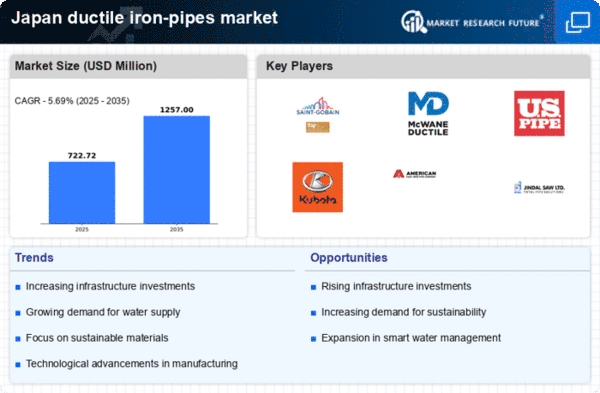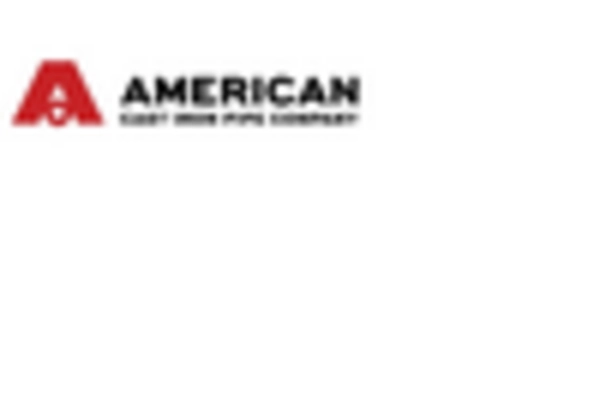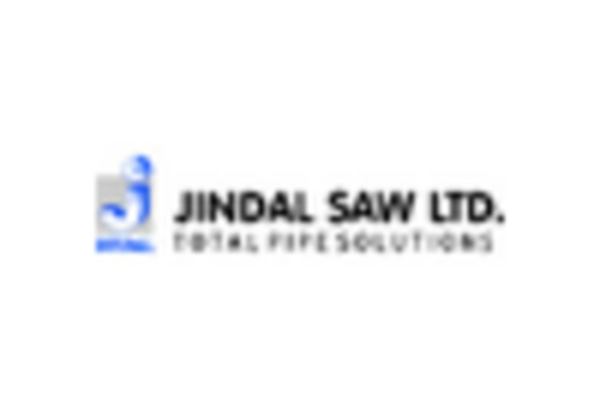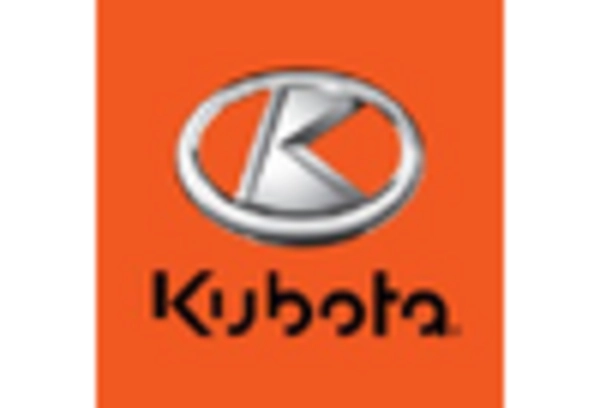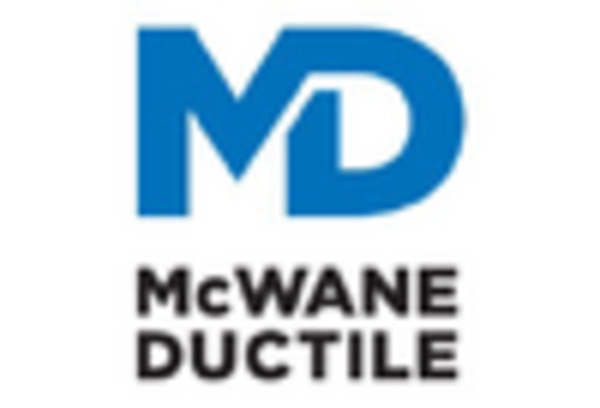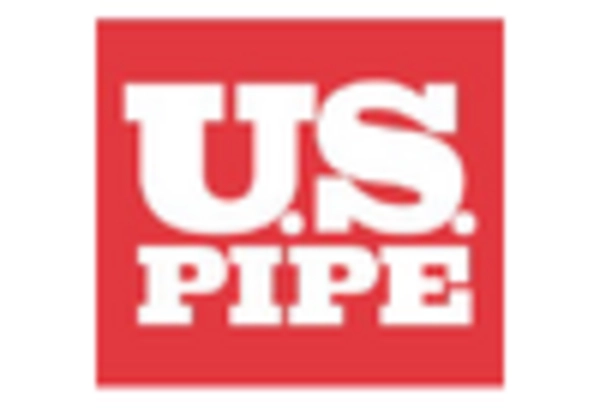Growing Urbanization
Rapid urbanization in Japan is a crucial driver for the ductile iron-pipes market. As cities expand, the demand for robust and reliable water supply and sewage systems increases. Urban areas require extensive infrastructure to support their growing populations, leading to a heightened need for durable piping solutions. Ductile iron pipes, known for their strength and longevity, are increasingly favored in urban projects. According to recent data, urban areas in Japan are projected to grow by approximately 10% by 2030, which could significantly boost the ductile iron-pipes market. This trend indicates a shift towards modern infrastructure, where ductile iron pipes play a vital role in ensuring efficient water management and waste disposal systems.
Rising Demand for Sustainable Solutions
Growing awareness of environmental sustainability is influencing the ductile iron-pipes market in Japan. As industries and municipalities seek to reduce their carbon footprints, the demand for sustainable materials and practices is on the rise. Ductile iron pipes, with their recyclability and durability, align well with these sustainability goals. The market is likely to see an increase in demand as more projects prioritize eco-friendly materials. Additionally, the potential for reduced maintenance costs and longer service life associated with ductile iron pipes further supports their appeal in sustainable infrastructure projects. This trend indicates a shift towards responsible resource management in the ductile iron-pipes market.
Regulatory Support for Quality Standards
Japan's stringent regulatory framework regarding water quality and infrastructure safety is a significant driver for the ductile iron-pipes market. The Japanese government has implemented various standards to ensure that water supply systems are both safe and efficient. These regulations often favor the use of high-quality materials, such as ductile iron, which is recognized for its resistance to corrosion and mechanical stress. The emphasis on maintaining high standards in public health and safety is likely to increase the demand for ductile iron pipes. As municipalities strive to comply with these regulations, investments in ductile iron-pipes market are expected to rise, reflecting a commitment to sustainable and reliable infrastructure.
Technological Innovations in Manufacturing
Technological advancements in the manufacturing processes of ductile iron pipes are driving growth in the market. Innovations such as improved casting techniques and enhanced alloy compositions have led to the production of pipes that are not only stronger but also lighter and more cost-effective. These advancements allow for easier installation and reduced transportation costs, making ductile iron pipes more appealing to contractors and municipalities. The ductile iron-pipes market is likely to benefit from these innovations, enhancing the overall performance and longevity of the pipes. Furthermore, the integration of smart technologies in monitoring and maintenance could further elevate the market's potential, aligning with Japan's focus on smart city initiatives.
Increased Investment in Water Infrastructure
The commitment of the Japanese government to upgrading and maintaining water infrastructure is a pivotal driver for the ductile iron-pipes market. With aging infrastructure posing challenges, there is a concerted effort to invest in modern solutions that ensure reliable water supply and waste management. Recent reports indicate that public spending on water infrastructure is expected to increase by 15% over the next five years, which could significantly impact the ductile iron-pipes market. This investment trend reflects a broader recognition of the need for sustainable and resilient infrastructure, where ductile iron pipes are likely to play a central role in future projects.


